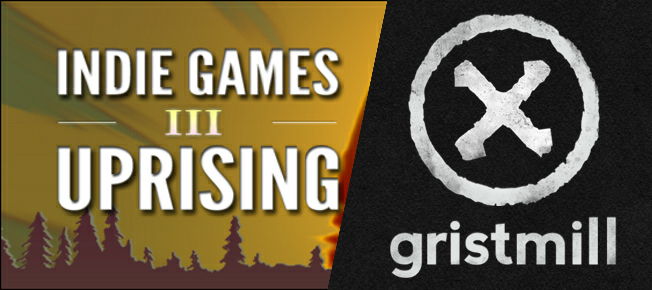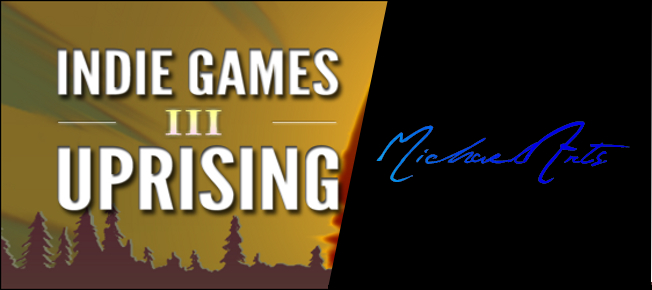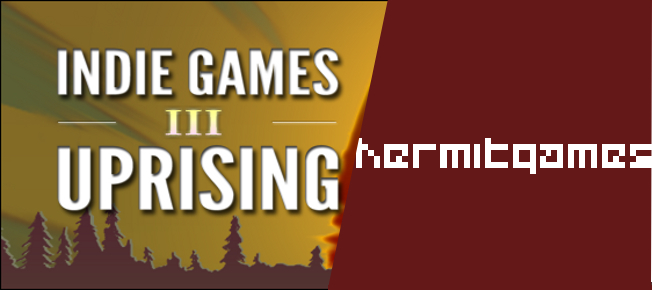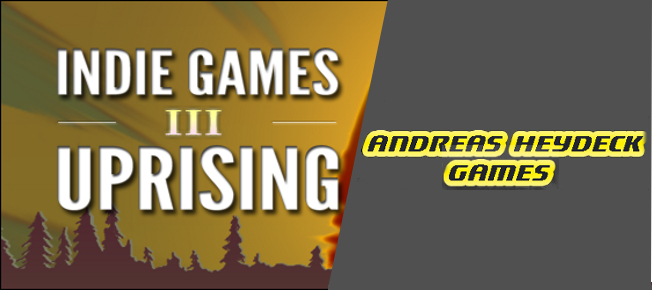Toronto-based Ratchet Game Studios is looking to make their first Xbox splash with Pixel, a puzzle game that’s been selected for participation in this year’s Indie Games Uprising. In the following interview, we talk with studio rep Rob who shares his unique programming background and tells us why everyone will be really missing out if they don’t take Pixel for a spin.
I wanted to try my hand at a software/game studio for a while. I was always pulled in by 3d design and for a while was wanting to go into it as a career. After learning how much of a creative outlet 3d programing could be, I realised I needed a name, and being in a mechanical engineering program at the time, it only seemed natural to call it Ratchet. Since being done with school I’ve had to time to really work on some of the projects I’ve had brewing.
Why did you decide to go with XBLIG as your platform of choice?
I started with XBLIG more out of convenience; I took a programming class in university thinking it’d be good background information, and turned out to become a real interest of mine. XNA launched a few months after I started taking the class and it really caught my eye at how much easier it was to program in (relatively) and how versatile it was. Not to mention, there are some pretty solid titles out there in it, so it seemed like a great community to get involved in.
What is Pixel all about, and did you have any inspirations for the game?
Pixel was an idea I had years ago in university, and even tried putting it together in Blender’s game engine, but just couldn’t get it working the way I wanted and didn’t have the time to dedicate to it. It gave me time to polish the idea every so often. Once I was done school and settled in a job, it gave me the time to work on it and develop it.
I think the game will naturally draw some comparisons to Portal because it’s a physics-based puzzle game with a gun of sorts. Can you explain some of the mechanics in the game for our readers?
You’re right, and Portal was a real inspiration for it. The physical controls are similar (as they are for any FPS), but the mechanics though are different, in that you need to manipulate the pillars physical position to solve the problems instead of using portals. Also, if you fall you land back where you started your level. I had a few dev’s say they liked that feature, a few didn’t, but I found it kept the flow of the game going instead of it having some death sequence and then you have to wait for it to load again. Here you just “fall” back to the beginning, and give it another try.
I’m really digging the art style of Pixel with its almost cel-shaded appearance. How did you settle on that look?
Ha, I started developing Pixel on my old university laptop (circa 2006), which was a single core, 2 Ghz, 1 Gb of ram, 128 mb of shared video memory. The thing could barely run Youtube at 720p, so when I was coding in XNA I found it ran quickest when I used cel shading. Once my laptop died (becuase it couldnt get through a system restore without overheating and shutting down), I upgraded to a quad core with 8 gigs of ram. I tried other looks, but the cel-shaded look just looked the best, so it stuck.
What’s been the biggest stumbling block in terms of getting development wrapped up? It seems like every studio has some of the same roadblocks, but it’s often a different one that’s proven the most difficult to overcome.
Last minute bugs are my biggest issue. My background isn’t in coding, so a lot of the time I’m lost at what the issue could be and I need to dive deep into the code to find the cause. End of the day, Google is my home boy and has saved my ass a few times in terms of issues I’m out to lunch on.
It’s actually pretty interesting that you had no programming background coming into this project. Generally it seems like developers are the people doing solo projects or initiating group projects. If programming isn’t your strength, what would you consider yours? And what advice would you give to aspiring game developers who aren’t the strongest coders?
Without sounding self absorbed here – haha – I’d say my greatest strength would be problem solving and that I try to understand not just ‘How’ things work but ‘Why’ they work that way. For instance, I had a lot of memory and garbage collection issues on Pixel at first that caused it to run fine on a PC but lag badly on an Xbox. Understanding why garbage collection is an issue on the Xbox helped me find issues in the code and to fix it. So if you aren’t the strongest coder, learn WHY you’re doing things, so that later on when you have an issue, you have a better chance at debugging it.
How surprised were you that you made it into this year’s Indie Games Uprising?
I was. I was initially uploading it to DBP (Dream.Build.Play) and thats where people noticed it for the Uprising.
What does the future have in store for Ratchet Game Studios? Are there plans yet for a new game? Will Pixel be ported to other platforms?
I plan on porting Pixel to Android as well as getting a PC version out. There are also a few other things in the pipeline, but you’ll just have to wait and see.
And finally, let’s end things by touching on what’s best about Pixel. Why should our readers play your game?
Pixel is the sort of game that draws on a lot of already established FPS and puzzle mechanics and combines the tw0. Sometimes the solution is obvious, as early levels usually are, but as it progresses, it challenges the player to really think about how to solve the levels, how different coloured pillars respond differently, and that you need to really think outside the box to solve the problems. It’ll give a good challenge to the player.
Additional Pixel Coverage:
Prelude to the Uprising: Pixel on theXBLIG.com
© 2012 – 2013, The Indie Mine. All rights reserved.





Trackbacks/Pingbacks
[...] Interview at The Indie Mine [...]
[...] The Indie Mine – Indie Games Uprising III interview with Ratchet Game Studios [...]
[...] CORRECTION: Clearance Bin Review only has a preview -http://clearancebinreview.com/2012/08/29/xblig-uprising-preview-the-blocks-th… and an interview - http://clearancebinreview.com/2012/09/07/xblig-uprising-developer-interview-r… AND Indie Mine has an interview - http://theindiemine.com/indie-games-uprising-iii-interview-ratchet-game-studios/ [...]
[...] hybrid puzzler/shooter/platformer is the first Xbox title to be released by Toronto-based dev team Ratchet Game Studio. While combining those genres with a cel-shaded style exhibits some promise, ultimately a lot of [...]